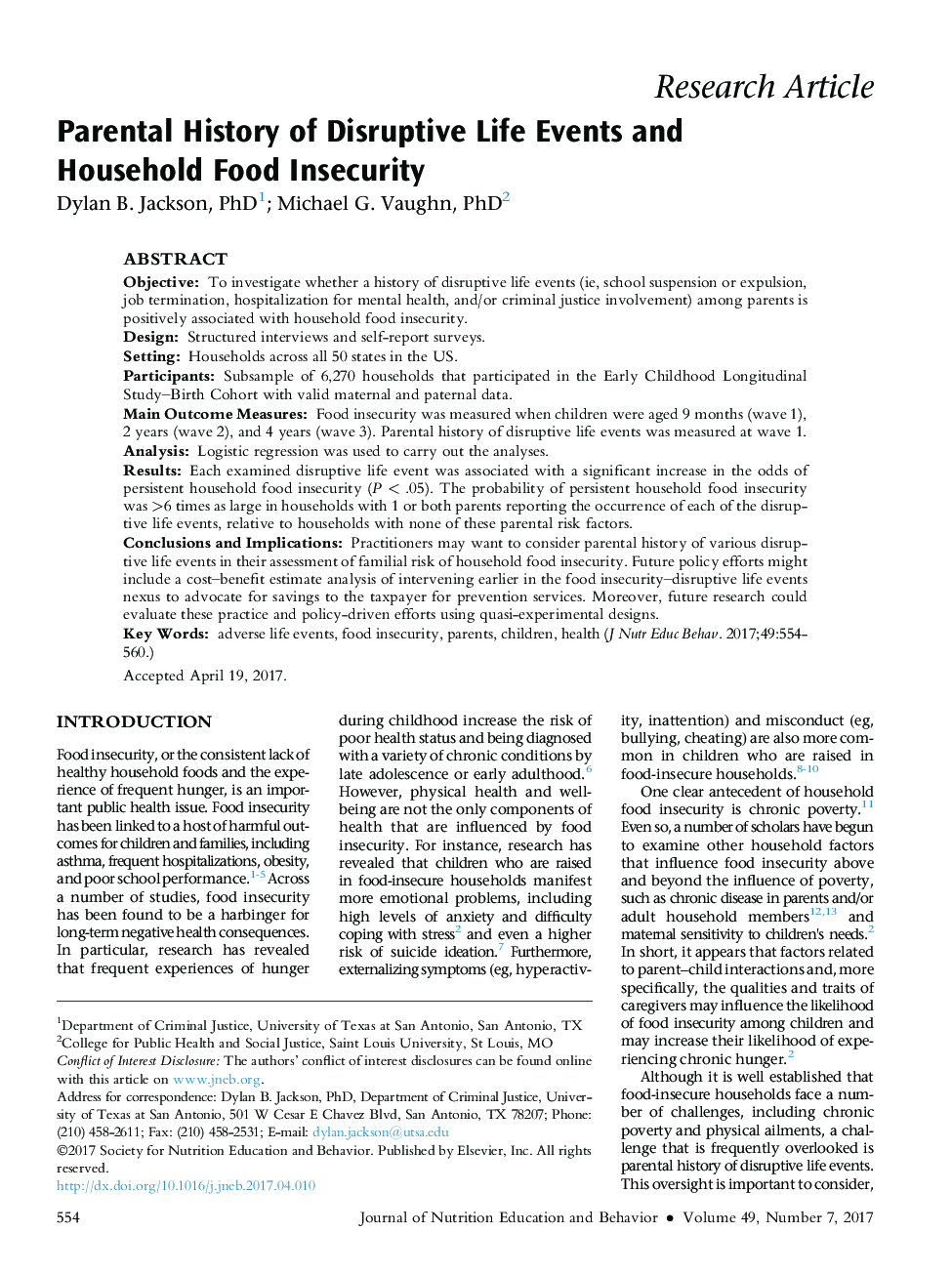| Article ID | Journal | Published Year | Pages | File Type |
|---|---|---|---|---|
| 4939521 | Journal of Nutrition Education and Behavior | 2017 | 8 Pages |
ObjectiveTo investigate whether a history of disruptive life events (ie, school suspension or expulsion, job termination, hospitalization for mental health, and/or criminal justice involvement) among parents is positively associated with household food insecurity.DesignStructured interviews and self-report surveys.SettingHouseholds across all 50 states in the US.ParticipantsSubsample of 6,270 households that participated in the Early Childhood Longitudinal Study-Birth Cohort with valid maternal and paternal data.Main Outcome MeasuresFood insecurity was measured when children were aged 9 months (wave 1), 2 years (wave 2), and 4 years (wave 3). Parental history of disruptive life events was measured at wave 1.AnalysisLogistic regression was used to carry out the analyses.ResultsEach examined disruptive life event was associated with a significant increase in the odds of persistent household food insecurity (P < .05). The probability of persistent household food insecurity was >6 times as large in households with 1 or both parents reporting the occurrence of each of the disruptive life events, relative to households with none of these parental risk factors.Conclusions and ImplicationsPractitioners may want to consider parental history of various disruptive life events in their assessment of familial risk of household food insecurity. Future policy efforts might include a cost-benefit estimate analysis of intervening earlier in the food insecurity-disruptive life events nexus to advocate for savings to the taxpayer for prevention services. Moreover, future research could evaluate these practice and policy-driven efforts using quasi-experimental designs.
